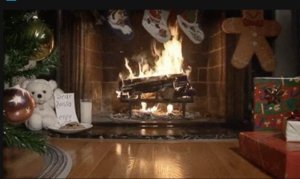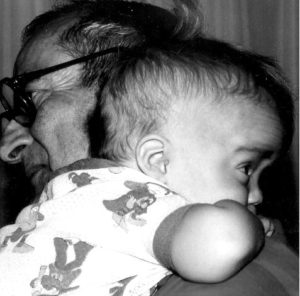Beam us up, Scottie: an optimistic look at the future
December 30, 2017 • 10 Comments • Posted in careers/jobs for people who are blind, memoir writing, travel, writing promptsAnnelore is one of four writers in the memoir class I lead at the Chicago Cultural Center who was born in a foreign country. She met her American husband Roy in the small town they both worked in on the Czech border, and the two of them moved to his hometown in North Dakota 55 years ago. Roy’s work relocated their family to many different places before finally settling in Chicago, and we are delighted to have her in class with us. I was especially tickled when she used my What I Hope For prompt to write about a New Year’s resolution she came up with back in 1963, her first year in America.
by Annelore Chapin
During my first years in this country I suffered from deep homesickness. Twenty years old, I felt cut off from everyone and everything I knew. I longed to stay connected with family and friends. The solution to ease my woes was to correspond by mail.

Maybe some day we can walk into one of these things and beam anywhere we want.
A letter to Europe would take about 14 days to arrive, and, should there be an answer, that would have to travel for another 14 days. Telephone calls were extremely expensive and were charged by the minute. We used the phone only in emergencies. My quest to stay in touch with everyone ‘back home’ resulted in an idea: On the first day of every year I would make a resolution. I would write one letter every day.
For a few weeks I did well, but eventually I fell behind. By March my backlog was so great that I gave up. The following year, I would try again. And the year after that. And after that. And then a miracle happened. The World Wide Web was created, and suddenly…”You’ve Got Mail!” A message a day became easy.
Had I ever hoped for this to happen? Of course not, and that taught me one thing: I can hope for things as yet unimaginable. Things like a transporter machine.
We know these contraptions from Star Treck, where they can move Captain Kirk or Scottie from one planet to another. Or from Dr. Who, who’s telephone booth transporter takes him from one time period to another one. At a time when my children and grandchildren live too many miles away to hug them on a regular basis, and friends around the globe are getting too frail to travel, I long for a method to move across space, from here to there, in seconds. And at ease.
Some of my friends who are “conspiracy believers” even insist that our governments already developed this technology. It might seem far-fetched now, but that is what I hope for: a transporter machine. Hope is defined as”the optimistic attitude of mind based on the expectation of a positive outcome,” and I am an optimist!



